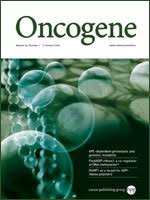
“Cannabis is a useful botanical with a wide range of therapeutic potential. Global prohibition over the past century has impeded the ability to study the plant as medicine. However, delta-9-tetrahydrocannabinol (THC) has been developed as a stand-alone pharmaceutical initially approved for the treatment of chemotherapy-related nausea and vomiting in 1986. The indication was expanded in 1992 to include treatment of anorexia in patients with the AIDS wasting syndrome. Hence, if the dominant cannabinoid is available as a schedule III prescription medication, it would seem logical that the parent botanical would likely have similar therapeutic benefits. The system of cannabinoid receptors and endogenous cannabinoids (endocannabinoids) has likely developed to help us modulate our response to noxious stimuli. Phytocannabinoids also complex with these receptors, and the analgesic effects of cannabis are perhaps the best supported by clinical evidence. Cannabis and its constituents have also been reported to be useful in assisting with sleep, mood, and anxiety. Despite significant in vitro and animal model evidence supporting the anti-cancer activity of individual cannabinoids-particularly THC and cannabidiol (CBD)-clinical evidence is absent. A single intervention that can assist with nausea, appetite, pain, mood, and sleep is certainly a valuable addition to the palliative care armamentarium. Although many healthcare providers advise against the inhalation of a botanical as a twenty-first century drug-delivery system, evidence for serious harmful effects of cannabis inhalation is scant and a variety of other methods of ingestion are currently available from dispensaries in locales where patients have access to medicinal cannabis. Oncologists and palliative care providers should recommend this botanical remedy to their patients to gain first-hand evidence of its therapeutic potential despite the paucity of results from randomized placebo-controlled clinical trials to appreciate that it is both safe and effective and really does not require a package insert.”
https://www.ncbi.nlm.nih.gov/pubmed/31161270
https://link.springer.com/article/10.1007%2Fs11864-019-0659-9

 “Currently, the involvement of the endocannabinoid system in cancer development and possible options for a cancer-regressive effect of
“Currently, the involvement of the endocannabinoid system in cancer development and possible options for a cancer-regressive effect of 





